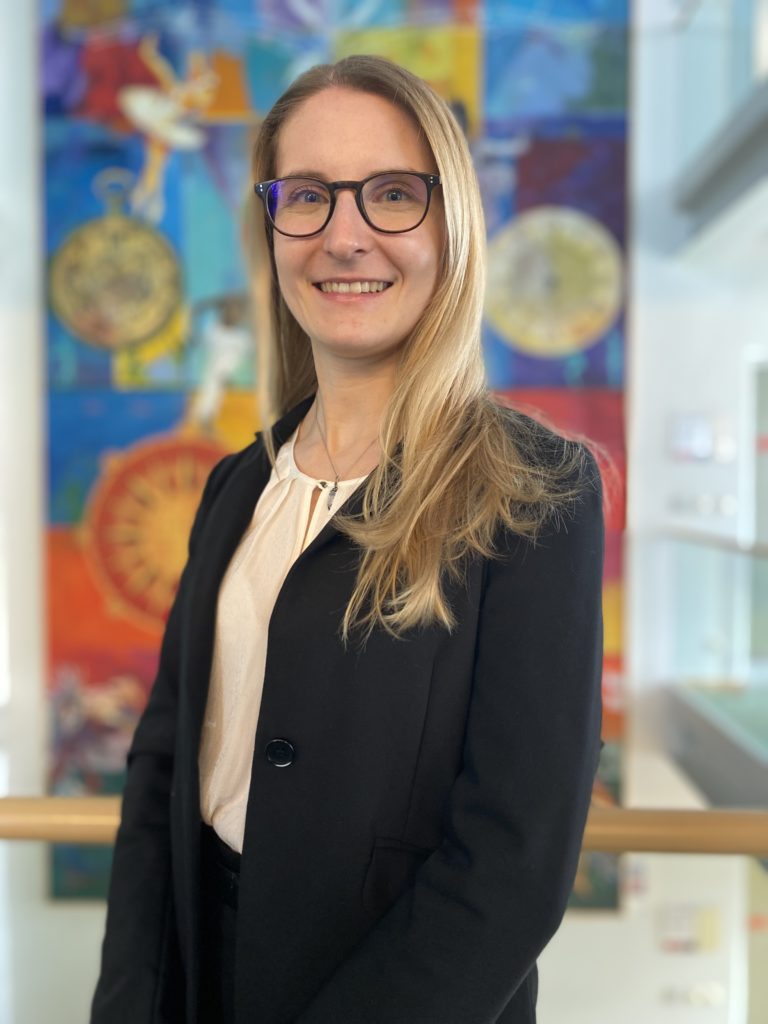Gender Equity

Technology is often described as a powerful equaliser – and at the University of Luxembourg’s Interdisciplinary Centre for Security, Reliability and Trust, we deeply believe so.
According to the UN, women still account for only 28% of engineering graduates and 40% of graduates in computer science and informatics – and that despite a shortage of skills in the sector. As a leading ICT research centre, we strive to showcase the women we work with to inspire others to follow in their steps.
Dr. Tamara Roth, post-doctoral researcher in the Digital Financial Services and Cross-Organisational Digital Transformations (FINATRAX) research group at SnT, shares her experiences.
What inspired you to pursue a career in tech?
A number of incidents and developments in my life have led to tech. My path hasn’t exactly been straightforward. In the beginning of my studies, I probably wouldn’t have believed anyone who told me that I would love working in tech. I always had more of an inclination for natural sciences, such as biology and cultural studies. That is why I do not have a background in tech but one master’s degree in neurobiology and another in English studies and educational sciences.
During my first Ph.D., I tried to combine these passions with a thesis at the intersection of neurobiology, educational psychology, and English studies. I looked into performance-enhancing learning environments using mental models and content and language integrated learning. During this time, I also started collaborating with another chair that explored the use of blockchain technology for organisations. At first, I was fascinated by how much blockchain resembled the nervous system. It’s of course only at the surface, but the analogy helped me understand the technology better. Using the analogy also made me realise that it is not easy to understand for everyone, despite the vision – at that time – to implement blockchain large-scale. And understanding is key; if we don’t know how something works, it will be much more difficult to leverage its advantages. Therefore, we need means to translate technological innovation in a way that it is understandable for everyone. I find it an even more daring challenge, but I am passionate about finding solutions.
What do you work on today?
My research combines the perspectives from my various fields of study with a focus on innovation for the social good. I’m currently exploring the interplay of innovative technologies like blockchain and digital identities with different social, cultural, and socio-ethical constructs in public administration. For example, I investigate the effects of information systems on social justice and digital dignity. Another line of research I am pursuing is how to include desirable psychological traits, like creativity and openness into AI algorithms to reduce bias in face detection or to discover deep fakes more easily.
Your interdisciplinary focus is very inspiring. Can you tell us more about it?
Well, I feel that I am finally home. Tech is as open to new perspectives as it is pervasive. Many other disciplines are rather restrictive, but research with technology not only allows but even requires researchers to think out of the box. Therefore, it is no contradiction to be interested in humanities or natural sciences and to love tech. It is rather a source of inspiration to love both and do both.
This is especially relevant to young girls. They are often pushed more towards humanities due to gender stereotypes and have a hard time later when they discover their passion for STEM subjects. Tech allows them to leverage their previous experiences and contribute them to the community. They shouldn’t be afraid of reaching out – tech is a world with open doors and getting into it can be so enriching.
Just take me, for example. There is still so much pressure on having a very straightforward career path early on. Mine wasn’t straightforward but in retrospect, all my interests came together, and I have so much fun using everything I have learned in the past.
Who is your role model and why?
I have had different role models along my path. But for my academic career in tech, my role model would be my mentor, Amber Young, Director of the ISYS PhD Program and Assistant Professor of Information Systems at the Sam M. Walton College of Business, University of Arkansas. She is simply incredible and also comes from a different background, namely educational sciences for maths, and later did an MBA before she discovered her passion for tech. She writes amazing papers, balances family life as a mother of three, and even designs houses in her free time; she’s simply a continuous source of inspiration. I highly recommend everyone find “their Amber.”
What’s a challenge women face in academia?
Regardless of gender, academia is an inspiring yet competitive environment to be in. Many academics strive to get their first professorship in their early or mid-30s. For many women, this collides with the timeframe to start a family. Maternity leave creates a gap in the resume which can be difficult to bridge.
Thus, many women feel compelled to either be very fast and get a professorship before having children, or risk being passed over for it down the line. New guidelines try to offer more protection, but they are yet to offer real equity to women. The same, by the way, also applies to men who take over most of the parenting; but as a woman, it’s just something that is very present and an often talked about topic – even if starting family is not yet in the near future.
My way to overcome such challenges is to have a role model like Amber and to take action. As part of the Gender Equality Working Group at SnT, I am supporting the University of Luxembourg’s Gender Equality Committee in establishing a mentoring programme that will launch on International Women’s Day. This will help provide more tailored career guidance to a pilot group of female researchers at SnT, before hopefully being opened up to all researchers later on.
This article was originally published in February 2023.

Dr. Tamara Roth is a post-doctoral researcher in the FINATRAX research group and currently a visiting research scholar at the ISYS department of the Walton College of Business. She received her first Ph.D. at the intersection of educational psychology, English studies, and neurobiology from the University of Bayreuth in Germany. Her research interests are in the development of and reflection on ethical and value-driven IT-design, as well as organisational and behavioural factors that influence IT-adoption and organisational sensemaking of fashionable IT. In this area, she is currently finalising her second Ph.D. to qualify for an academic career in information systems.